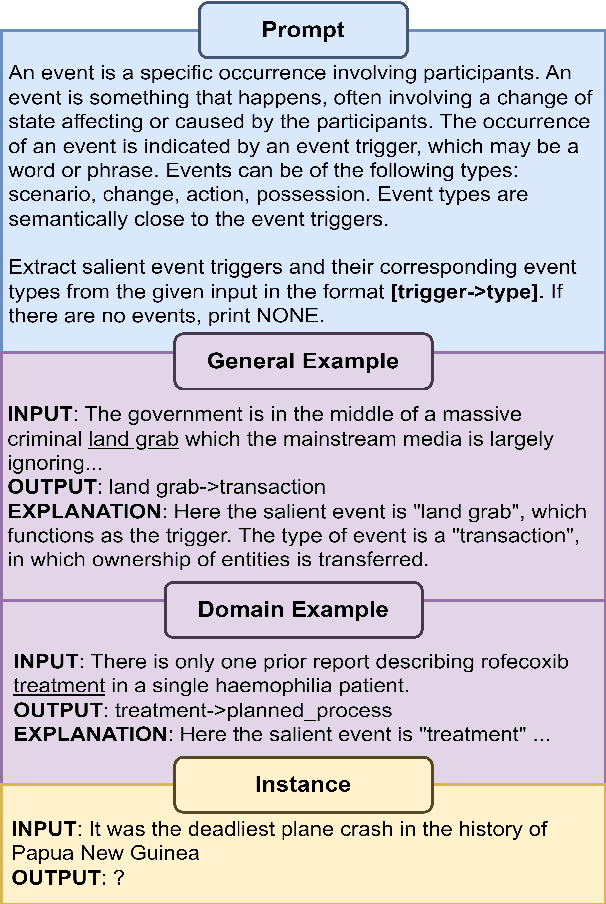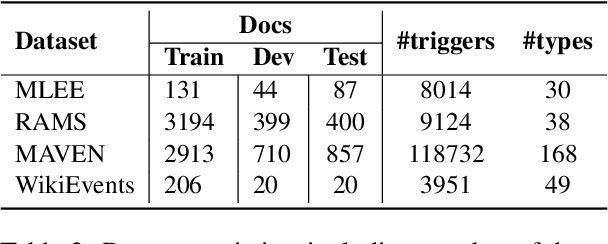EDM3: Event Detection as Multi-task Text Generation
Paper and Code
May 25, 2023



Event detection refers to identifying event occurrences in a text and comprises of two subtasks; event identification and classification. We present EDM3, a novel approach for Event Detection that formulates three generative tasks: identification, classification, and combined detection. We show that EDM3 helps to learn transferable knowledge that can be leveraged to perform Event Detection and its subtasks concurrently, mitigating the error propagation inherent in pipelined approaches. Unlike previous dataset- or domain-specific approaches, EDM3 utilizes the existing knowledge of language models, allowing it to be trained over any classification schema. We evaluate EDM3 on multiple event detection datasets: RAMS, WikiEvents, MAVEN, and MLEE, showing that EDM3 outperforms 1) single-task performance by 8.4% on average and 2) multi-task performance without instructional prompts by 2.4% on average. We obtain SOTA results on RAMS (71.3% vs. 65.1% F-1) and competitive performance on other datasets. We analyze our approach to demonstrate its efficacy in low-resource and multi-sentence settings. We also show the effectiveness of this approach on non-standard event configurations such as multi-word and multi-class event triggers. Overall, our results show that EDM3 is a promising approach for Event Detection that has the potential for real-world applications.
 Add to Chrome
Add to Chrome Add to Firefox
Add to Firefox Add to Edge
Add to Edge